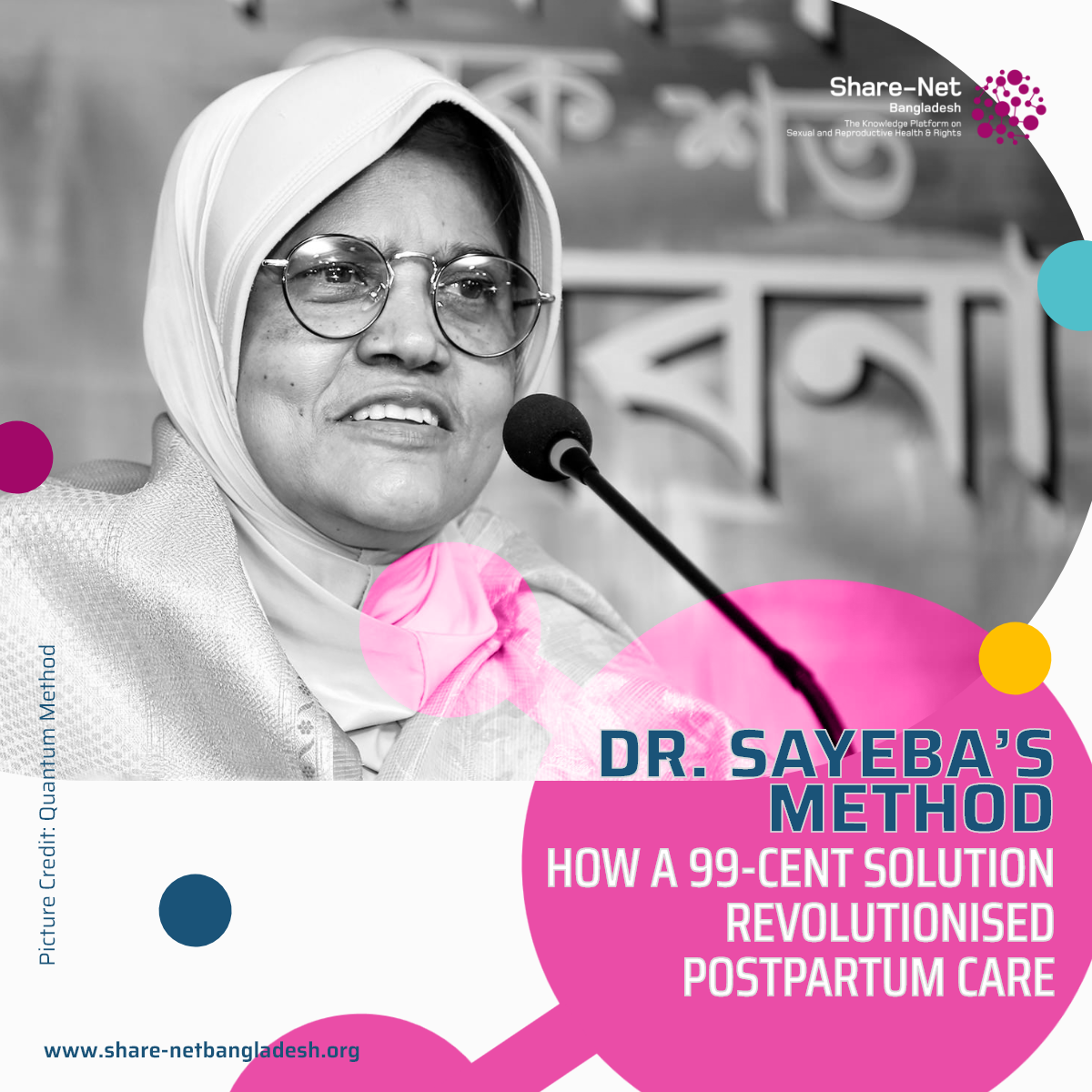Dr. Sayeba’s Method: How a 99-Cent Solution Revolutionised Postpartum Care
Dr. Sayeba Akhter, chair of Dhaka Medical College Hospital’s Gynaecology and Obstetrics Department, saw this crisis firsthand. Her innovative solution, now globally recognised as the ‘Condom Catheter Tamponade,’ has dramatically reduced PPH-related deaths, offering a simple and affordable method that is saving lives worldwide.
In the early 2000s, maternal deaths in Bangladesh were alarmingly high, with 31% caused by postpartum haemorrhage (PPH)—excessive bleeding after childbirth. PPH is the leading cause of maternal mortality globally, especially in low-resource settings where access to advanced medical care is limited. Dr. Sayeba’s discovery offers a practical solution for these settings.
Costing just Tk100 (or 99 cents), her method involves a catheter, a condom, a string, a saline set, and saline solution. By inserting the inflated condom into the uterus, pressure is applied, which stops the bleeding. This process mimics how pressure on an external wound stops bleeding—a straightforward yet revolutionary approach.
The effectiveness of the condom catheter tamponade was quickly proven. Dr. Sayeba first used it in 2001 after witnessing two women die from PPH. Within 10 minutes of trying her method on a third patient, the bleeding stopped. She went on to treat 23 more women successfully, and since then, millions of mothers globally have benefited.
Her method has been widely published in medical journals such as the International Gyne and Obs and British Medical Journal Review. It has become a key tool for preventing maternal deaths not only in Bangladesh but also in India, Nepal, Sri Lanka, and even as far as Canada. However, despite its international recognition, the method has often been wrongly attributed to others, highlighting an issue with giving due credit to pioneers from developing countries.
Dr. Sayeba’s method is not just a medical innovation—it’s a lifeline that aligns with global goals to improve sexual and reproductive health and rights (SRHR). By preventing unnecessary hysterectomies, it preserves women’s reproductive rights and allows them to have more children in the future if they choose. In contexts where reproductive health services are limited, this low-cost solution addresses the urgent need for accessible care and demonstrates how simple interventions can have a profound impact on public health.
Dr. Sayeba Akhter’s contribution to maternal health will continue to save lives, proving that effective, affordable solutions can change the world.
Source: Dhaka Tribune
Picture Credit: Quantum Method


